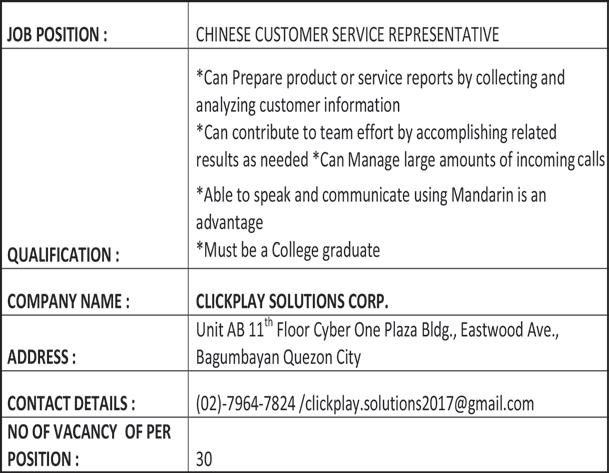
6 minute read
DOE plans to hold auction for offshore-wind tech
By Lenie Lectura @llectura
THE Department of Energy (DOE) plans to conduct an auction for offshore wind (OSW) technology next year.
“We actually consulted with the OSW service contract awardees and they said next year would be a good time for them. So we plan to hold an auction that includes OSW by next year,” said DOE Undersecretary Rowena Cristina L. Guevara.
However, she said the agency would have to adjust accordingly the Green Energy Auction Reserve (GEAR) prices for OSW as this varies per technology.
The GEAR prices are set by the Energy Regulatory Commission (ERC).
“Perhaps, the design will be a little bit different. There is a need to rationalize the GEAR prices depending on the technologies that are being used,” Guevara said.
“This time for GEA2 [Green Energy Auction round 2], we had a lot of communication with the ERC and the developers because they were not happy with the original GEAR prices that ERC came up with. So, we may have to redesign GEA for OSW next year. I think the GEAR will be coming out next week,” she added.
The GEA program was designed to continuously trigger the increase of renewable energy (RE) capacity in the country, which will help realize the government’s target of 35 percent RE in the energy mix by 2030 and 50 percent by 2040.
The first round of GEA was conducted in June last year. It generated almost 2,000megawatts (MW) of capacities that were committed to deliver energy from 2023 to 2025 at a
Govt, commercial fishers told to install monitoring devices
By Jonathan L. Mayuga @jonlmayuga
competitive price lower than or equal to the GEAR prices.
During the GEA1, the DOE issued 18 Certificate of Awards of RE capacity, which are committed to go onstream beginning this year.
For GEA2, the DOE has pre-qualified 118 bidders. A total of 339 out of 378 submissions of registration for different RE technologies from 118 companies were found compliant to participate further in the bidding process for the 11,600MW offered RE capacities.
The auction will be held on June 19.
After GEA-2, the DOE will conduct GEA3 in the fourth quarter this year for geothermal and impounding hydro.
The DOE will develop a specific auction policy and guidelines for GEA4.
The DOE plans to conduct the GEA annually to encourage more RE investments in the country.
TUCP concerned PHL fails in producing quality jobs

By Samuel P. Medenilla @sam_medenilla
THE country is still not producing enough “quality” jobs despite the lifting of restrictions on economic activities, which were imposed during the pandemic, according to the Trade Union Congress of the Philippines (TUCP).
The country’s largest labor group is now pushing for the government to come out with “pro-labor policies” to help attract more job-generating investments in the country.
In a statement, TUCP Vice President Luis C. Corral expressed concern over the quickening of the underemployment rate to 12.9 percent last April from 11.2 percent last March.
He said this translates to 6.20 million employed, “who are still seeking additional work because their measly salaries, further depressed by inflation, are no longer enough to feed their families and lead decent lives.”
“The economic managers cannot solely rely on the reopening of the economy and the private sector for job creation,” Corral said.
To help create more quality employment, the labor leader said the government must play a more active role in attracting more foreign direct investments (FDI) in the country with “pro-labor policies.”
“The TUCP believes that the Philippines’s pro-labor pivot and adopting [our] ‘Jobs Agenda’ can bring us out of the rut of precarious work and set us on the right track towards the creation of new, permanent and decent jobs,” Corral said.
The TUCP believes such reforms include addressing local incidents of labor rights violations by “upholding fundamental labor rights, ensuring core labor standards.”
It also pushed for the construction of a national railway system connecting agri-industrial hubs; sustainable industrial policy; and providing financial and technical aid to micro-scale, small- scale and medium-sized enterprises.
He noted the said reforms are now more crucial especially since the government is now seeking the resumption of the negotiations for the PhilippineEuropean (EU) Free Trade Agreement (PH-EU FTA) as well as pushing for the renewal of the EU GSP+ set to expire by the end of 2023.
The EU GSP+ provides the Philippines’ tariff-free access to over 6,274 product lines to the EU market.
“All these trade privileges and prospective bilateral agreements are tied to the Philippines’ compliance with the fundamental labor rights and core labor standards,” Corral said.
“We remind our economic managers, state security forces and employers that addressing workers’ issues and passing pro-worker policies serve as an international seal of good housekeeping for sustainable businesses to export tariff-free to foreign markets and Filipino workers to get new, permanent and decent jobs,” he added.
Private sector urged to create more job-generating schemes
By Jovee Marie N. Dela Cruz @joveemarie
THE chairman of the House Committee on Labor and Employment lauded the private sector initiative that aims to create a million jobs for Filipinos. The panel chairman and Rizal 4th District Rep. Juan Fidel Felipe F. Nograles also urged more private sector companies to also come up with similar job-generating programs.

“This is a great initiative that not only creates jobs but also addresses the problem of access to transportation for so many of our workers,” Nograles said last Sunday. “I hope that our other private sector companies will also come up with similar initiatives that would help generate employment for our people.”
The Motorcycle Micro Business Program, proposed by the Private Sector Advisory Council (PSAC)-Job Sector Group (PSAC-JSG), aims to empower the informal sector, particularly motorcycle “nanopreneurs,” by creating one million job opportunities for habal-habal riders while ensuring the highest safety standards.
The PSAC-JSG proposal was inspired by Angkas ride-hailing app operator DBDOYC Inc. that earlier proposed the “Motorcycle Nanopreneur Digital Jobs Platform,” which hopes to empower the country’s 18 million motorcycle owners to become “nanopreneurs” or small business owners.
The program also seeks to address the financial exclusion of Filipinos without access to banking services by offering secure cash handling and easier motorcycle loans.
Nograles highlighted the role that such initiatives could play in addressing poverty in the country.
Such private sector-led action helps ensure that programs are targeted and create actual value, the lawmaker added.
“I hope that the government and the private sector will continue to work together through PSAC. With such convergence and close collaboration our inclusive development will not be a pipe dream but something attainable,” the lawmaker said.
SMALL fishermen belonging to the Pambansang Lakas ng Kilusang Mamamalakaya ng Pilipinas (Pamalakaya) added their voice to the growing sentiment against the stop order issued by Malacanang against the implementation of the vessel monitoring system (VMS) for commercial fishing boats.
The group, a national alliance of fishermen and fisherfolk organizations, also brushed aside the “price shock” warning issued by the commercial fishing sector should the vessel monitoring measure is enforced.
The group said commercial fishing companies are making it as an “excuse” to continue their unregulated and unsustainable fishing spree, including municipal fishing grounds which are supposed to be exclusive for small fishers.
Under Fisheries Administrative Order (FAO) 266, commercial fishing vessels that weigh 3.1 gross tons and above, are required to install Vessel Monitoring System (VMS) and Electronic Reporting System (ERS).

The monitoring measure seeks to keep track of commercial fishing activities including the vessel’s port of origin and arrival, date and time, location of the boat where the fish was caught, and species and volume of fish caught.
“The FAO 266 is a welcome measure to regulate the unsustainable and often destructive method of fishing of commercial vessels. Operated by big fishing firms, these commercial vessels are exhausting and exploiting the fishery and marine resources in our seas. Commercial fishing vessels usually swarm the 15-kilometer municipal waters, out-competing and overwhelming the traditional and backward fishing methods of small fishers,” Pamalakaya National Chairman Fernando L. Hicap was quoted in a statement as saying.
Incessant drive
HICAP said the commercial fishing industry is based on export, and its vessels’ incessant drive to meet the demand of the global market not only depletes our domestic market supply but also the fish stocks in our seas.
“For us, small and municipal fishers, we don’t buy the drama of some commercial fishing groups that comply with the vessel monitoring scheme could pose negative impacts to the local production, because their production is based on export to begin with. We instead urge the commercial fishing industry to strictly observe the regulatory measure to ensure that our fishing grounds, especially the municipal waters, are genuinely protected and preserved for our domestic fishery needs,” he said.
Lastly, Hicap said the government should strengthen the production of the municipal fisheries sub-sector through adequate state support, production subsidy, and ensuring the exclusive rights of small-scale and subsistence fisherfolk to our fishing grounds and coastal communities.
International ocean conservation advocacy nongovernment organization Oceana Philippines earlier assailed alleged moves to amend the Philippine Fisheries Code which they said will pave the way for commercial fishing vessels to catch fish in municipal fishing grounds.
They said instead of amending the law, the government should enforce it, starting with requiring commercial fishing boats to install vessel monitoring devices that will allow the government to monitor their behavior when on a fishing expedition.
The group has been complaining about the intrusion of commercial fishing boats in municipal fishing grounds in defiance of the Philippine Fisheries Code.







